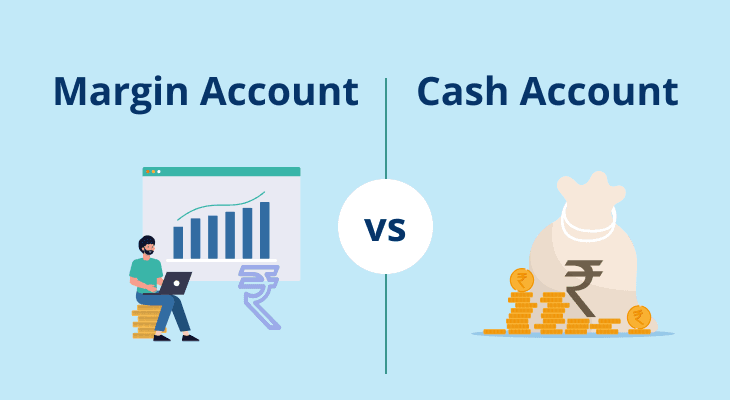
Table of content
- What is a BSDA Account?
- Benefits of a BSDA Demat Account
- What are the eligibility criteria for BSDA?
- Limitations of a Basic Service Demat Account
- What are the charges levied on BSDA?
- SEBI Stipulates the Following Conditions for BSDA Accounts
- How to Open a Basic Service Demat Account
- How to Convert a Regular Demat Account to a BSDA Demat Account
- Conclusion
Process for Converting your Demat Account into a BSDA Account
A demat account is mandatory to invest in the stock market. You cannot purchase or sell shares through the stock exchange without it. There are currently two kinds of demat accounts that you can open - a regular demat account and a BSDA account.
Although the function of both of these types of accounts remains the same, they do differ from each other in a few ways. Here’s everything you need to know about the BSDA demat account and how to convert your existing account to a BSDA account.
What is a BSDA Account?
The BSDA Demat Account is an exclusive Demat account that all eligible Indian citizens can open. The main purpose of the BSDA account is to prompt the entry of small investors with minimal or no knowledge of stocks, mutual funds, and other securities, into the financial markets and invest.
The Basic Service Demat Account (BSDA) offers investors services similar to those offered by a regular Demat account, only the costs of a BSDA account prove to be lower. For instance, the Basic Service Demat Account holder is not required to pay maintenance costs if they have holdings under ₹50,000. Additionally, if an investor’s holding sum falls within ₹50,000 and ₹200,000 (2 lakh), a nominal maintenance fee of ₹100 is charged per year. In the process of investing, it is imperative that investors grasp the differences between BSDA Demat accounts and regular Demat accounts so they can decide on affordable choices to suit their requirements.
Benefits of a BSDA Demat Account
Compared to a regular Demat account, a BSDA account offers several benefits. Here’s a quick overview of a few of them.
Flexible Annual Maintenance Charges
One of the major advantages of the Basic Service Demat Account is that the AMC or Annual Maintenance Charges are levied based on the value of your holdings. The AMC will not be levied on a BSDA account if the total value of the securities held is less than ₹50,000.
However, if the total value of the securities is between ₹50,001 and ₹2 lakhs, you will only have to pay an AMC of ₹100 + GST, which is far lower than that of a regular account.Zero Charges For Dematerialisation
You will have to pay a charge for the dematerialisation of securities if you possess a regular demat account. This charge can be anywhere from ₹10 to ₹50 per share certificate. However, with a BSDA account, no charges are levied for the dematerialisation of securities at all.
Ability To Choose The Holding Statement Delivery Mode
If you have a BSDA demat account, you can choose to either get a physical copy or a soft copy of your annual holding statement. Physical copies are sent to the address specified by you at the time of opening a demat account.
What are the eligibility criteria for BSDA?
The BSDA account helps beginner investors enter the arena of investing with limited capital and comes with key benefits for small investors. Nonetheless, there are specific criteria that must be met for opening a BSDA account. The following criteria must be considered:
- The investor cannot have another Demat account besides the BSDA account.
- The holder of the BSDA account must be the only owner of that account.
- Under the category of “BSDA”, only one Demat account may be opened and held.
- At any point in time, the value of the sum of shares in a BSDA account must not increase above ₹200,000 (2 lakh).
- In case the investor does hold another Demat account, they cannot be the BSDA account’s primary holder.
Limitations of a Basic Service Demat Account
A Basic Service Demat Account may encourage many investors to enter the share market in India. However, it brings certain limitations to the trading floor. These are mentioned below:
- Investors are not permitted to hold securities exceeding the value of ₹200,000 (2 lakh) in terms of capital and profit in their BSDA account at any given time.
- In case an investor’s securities cross the BSDA account holding limit of ₹200,000, the BSDA account will be converted to a regular Demat account (full-service Demat account). Hence, for such an account, investors will have to pay ₹25 plus 18% GST as monthly account maintenance costs.
- One of the chief limitations of a BSDA account may be that an investor has to be the only account holder. That is, a joint BSDA account cannot be opened.
- Finally, BSDA accounts cannot be opened by institutional investors, and can only be opened by retail investors.
What are the charges levied on BSDA?
The charges levied for a BSDA Demat account may vary from one broker to another, but on average, they may be close to the following:
- Annual Maintenance Costs
Value of Holdings | AMC Charges |
| Less than ₹50,000 | No charges |
| ₹50,000 - ₹200,000 | ₹100 plus GST applicable charged yearly |
| More than ₹200,000 | Same charges as non-BSDA Demat accounts |
- Physical BSDA Account Statements
During any billing cycle, 2 physical statements are provided by the depository participant (DP) or broker. These are free of charge. In case investors require more statements, they can receive them at an extra charge.
- Extra Charges
Additional costs that may be levied on holders of a BSDA account may include charges for bounced cheques, Delivery Instruction Slip rejection, Demat Request Form rejection, and other charges and transaction fees.
SEBI Stipulates the Following Conditions for BSDA Accounts
From the year 2012 when the Securities and Exchange Board of India (SEBI) introduced the BSDA option for Demat account holders, it has stipulated certain requirements for such accounts to operate. Here are the conditions that SEBI stipulates:
- DPs are permitted to levy an AMC of higher than ₹100 for the value of holdings between ₹50,000 - ₹200,000.
- If the holding value of any Basic Service Demat Account rises to more than ₹200,000, the depository participant is permitted to convert the account into a regular Demat account and levy fees applicable on such accounts (non-BSDA accounts).
How to Open a Basic Service Demat Account
In India, in case the value of your holdings in a regular Demat account falls below stipulated limits, your DP has the right to convert it into a BSDA account automatically. Typically, your DP will compute the annual maintenance cost and find out the quarterly fee charged. On the billing date, your DP will check if the value of holdings has gone above ₹200,000. If that is not the case, your account will be modified to a BSDA account. Nonetheless, it is important to note that you should not hold more than a single Demat account to have a BSDA account.
If you wish to open a fresh BSDA account, you have the option to do so with the broker or depository participant you signed up with for the account opening process. When you are in the process of opening your account, you can select the BSDA option, either online or offline. As with all processes, you will have to provide some personal information. This is all menu-driven if you are going through an online route, and for offline applications, you must open an account with the guidance of your DP.
How to Convert a Regular Demat Account to a BSDA Demat Account
If you’re a long-term investor who rarely purchases or sells securities, you may opt to convert your regular demat account into a BSDA. All you need to do is place a formal request for conversion with your Depository Participant (DP). However, before you place a request for conversion, you need to first ensure that you satisfy the following conditions.
You must be the first holder or the sole holder of the demat account you wish to convert.
You shouldn’t already have another demat account (BSDA or otherwise) in your name.
Your total value of securities in your demat account must be less than ₹2 lakhs.
Once you’ve ensured that you’ve satisfied all the above conditions, you can proceed to convert your account. The process involves sending a duly filled demat account modification form along with a BSDA declaration form to your Depository Participant. Once the forms are received by your DP, the account conversion should be complete within a few working days. That said, the conversion process may vary slightly depending on the DP you’re associated with.
Conclusion
As you can see, BSDA demat account charges are very low compared to that of a regular account. Therefore, if you don’t invest or sell securities frequently and have a portfolio value of less than ₹2 lakhs, you may consider converting your regular demat account to a BSDA.
If high account charges are something that’s worrying you, you can consider opening a trading and demat account with m.Stock. You not only get to enjoy zero AMC charges but also zero brokerage on equity delivery, mutual funds and IPOs.
FAQ
What are the types of Demat accounts?
Depending on the residential status or requirements of Demat account holders, there are different types of Demat accounts, namely the regular Demat account, the Basic Service Demat Account, the Repatriable Demat Account, and the Non-repatriable Demat Account.
How do I know if my account is a BSDA account?
In case the value of your account holdings falls below ₹200,000, it is considered a BSDA account.
What are the two types of demat accounts?
The two key types of Demat accounts are the regular Demat account and the Basic Services Demat Account.
What is the difference between BSDA & non-BSDA accounts?
Your Demat account is classified as a BSDA account if the value of its holdings is less than ₹200,000. For an account to be classified as a non-BSDA account or a regular Demat account, the value of holdings in that account exceeds ₹200,000.


